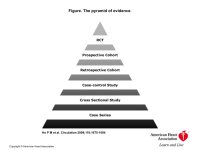Sorry, not true. All you have to do is google "guns bear spray" and you will be deluged by dozens if not hundreds of articles from big news sources.
Your response, your entire post, actually, is not even relevant to the comment you're claiming is untrue.
The statement was that "The myth you want to dispell is a myth nobody
here has championed."
Are you claiming that those articles were written by someone "here"? If not, what is untrue about the statement you responded to?
I guess we will just have to agree to disagree, but this is NOT a case control, retrospective analysis.
How is that disagreement? I've never claimed it was.
Sorry, they have not and cannot prove that contention by any retrospective study.
Yet you continue to try to prove your contention by similar methods.
You would like us to totally discard any attempt to make sense of large amounts of data collected on survivability during bear encounters because you say it doesn't, it can't possibly prove anything at all.
Then, in the same breath you try to prove your position by pointing to a few incidents that support your general opinion.
Basically what you're saying is that looking at one or two incidents provides useful information but that looking at hundreds makes it completely impossible to prove anything at all. You would actually have us believe that performing a study on a topic actually eliminates the ability to draw accurate conclusions about the topic whereas (based on your attempts to support your conclusions with a few incidents) one might have been able to do so with much more limited data before performing the study.
Based on your arguments, I would HIGHLY recommend that you stop studying this topic immediately. Who knows where the limit is that will destroy your ability to draw useful conclusions about bear attacks--I'd hate to think that I was the one who caused you to absorb that last bit of information that pushed you over the line.

Serously, not even your own cites support your contention.
For example, you claim it's impossible to prove anything with a survey. But your source actually says: "...retrospective studies are
usually unable to reach
cause-and-effect conclusions."
First of all, "usually" implies that they sometimes can. That means that your claim that they can't ever do it is false. Second, the comment is very careful to state what is difficult to prove. It doesn't say NOTHING can be proven by a study, it says that it's USUALLY not possible to establish "cause-and-effect".
Cause-and-effect is often difficult to establish regardless of the method employed. In this case, it's unnecessary to prove cause-and-effect. It's sufficient to note that a significantly greater percentage of people have survived bear attacks uninjured by employing bear spray as opposed to using firearms.
Basically the cite doesn't say what you claim it does and even if it did, it's not relevant because it's not directly applicable to what we want to know.
Here's another of your cites: "A case series provides weak empirical evidence because of the lack of comparability
unless the findings are dramatically different from expectations."
In fact, here we have a case where the findings (bear spray is significantly more effective at preventing injuries from bear attack) that is "dramatically different from expectations". Again, the cite doesn't say what you claim it does. Not only does it NOT call the survey results into question, in fact it points out a good reason that they should be considered as valid.
Instead of being a "neutral" observer, Tom Smith looks more like a pepper spray salesman than a scientific researcher.
Fortunately we don't have to rely on his results. There are several other studies that agree with his.
Getting back to one of your original statements: "The only type of study that can "measure" the differences between two interventions is a randomized and controlled study".
We can all understand that when the difference in the outcomes is dramatic, there's no need to measure the differences to note which one is larger. I can't, off the top of my head, tell you accurately how much a blue whale weighs or how long it is, nor can I accurately provide the weight and length of a bottlenose dolphin, but I CAN, without measuring anything at all tell you that the blue whale is bigger and heavier. A definitive and correct result provided without the need to do any measurement, quantitiation and without needing to establish any cause and effect.
Your objections to the study results, which you've attempted to support with cites which you often mischaracterize or which sometimes turn out to be irrelevant are all concerned with precise differentiation of the outcomes and/or definitively establishing cause-and-effect. There is no need for either of those things in this case.
If you can successfully show that the studies misrepresent the data, you have a point.
If you can successfully show that the studies omitted data and that the ommitted data will change the results, you have a strong point.
If you can successfully show that all of the studies (not just one or two) were conducted by biased researchers then you have a point.
You've done none of those things. So far, in spite of your creativity and your obvious determination, the strongest argument that you've raised amounts to pointing out that the survey results disagree with your opinion. And that's no argument at all.

